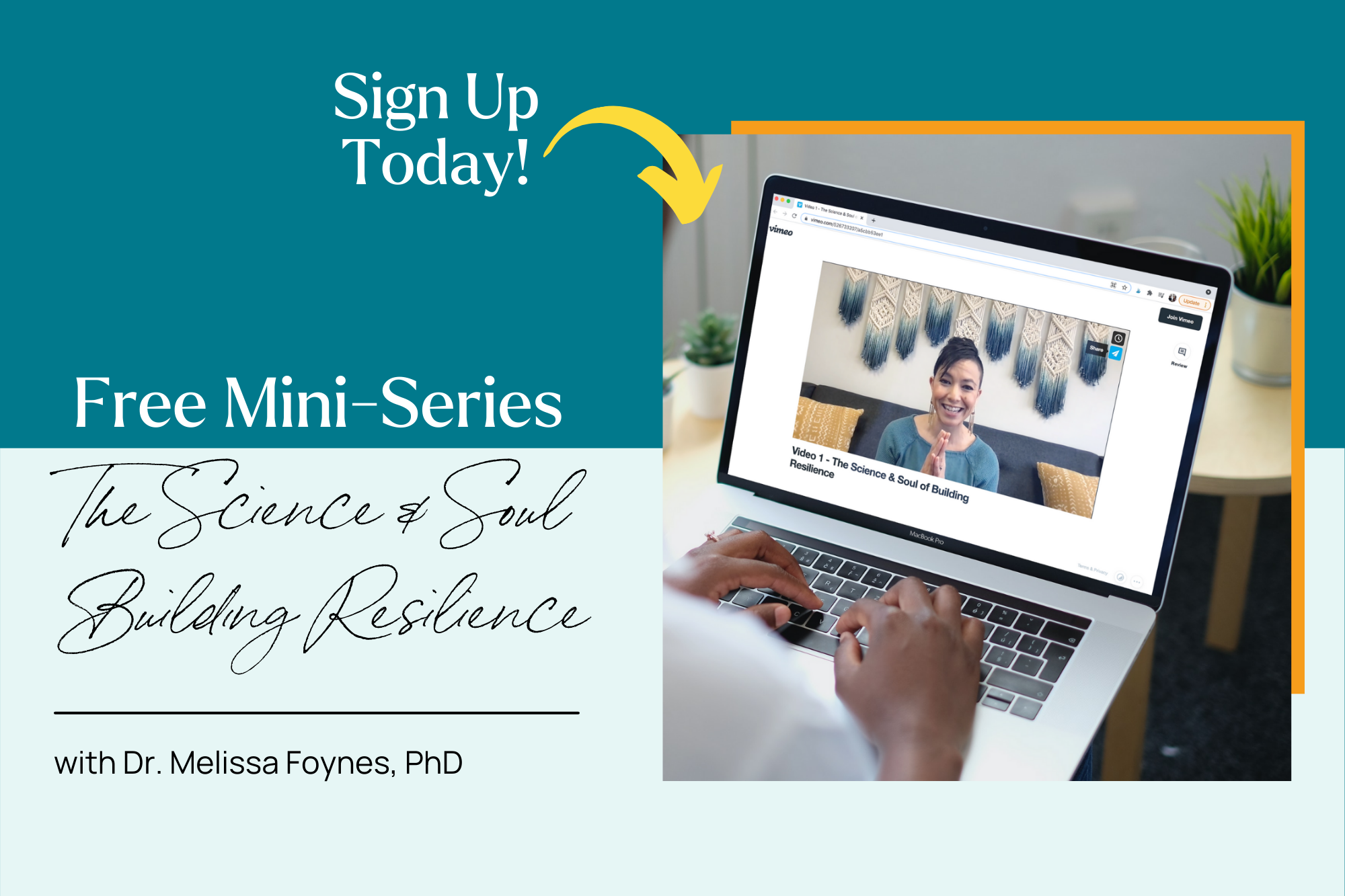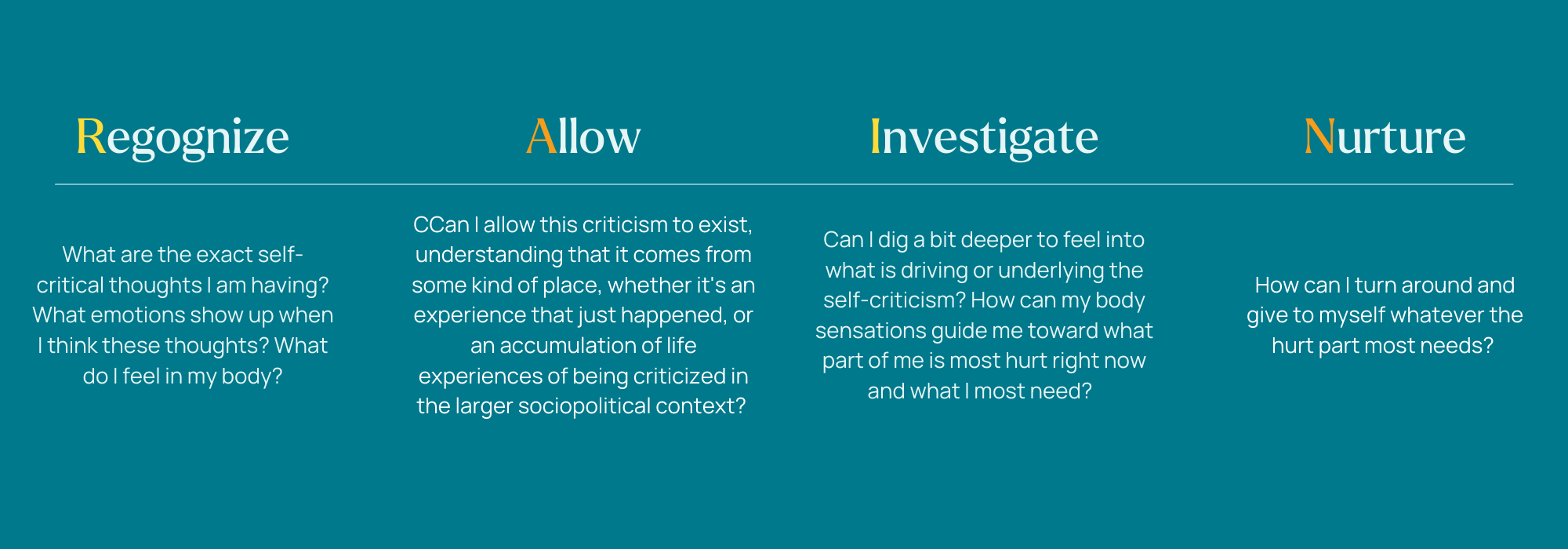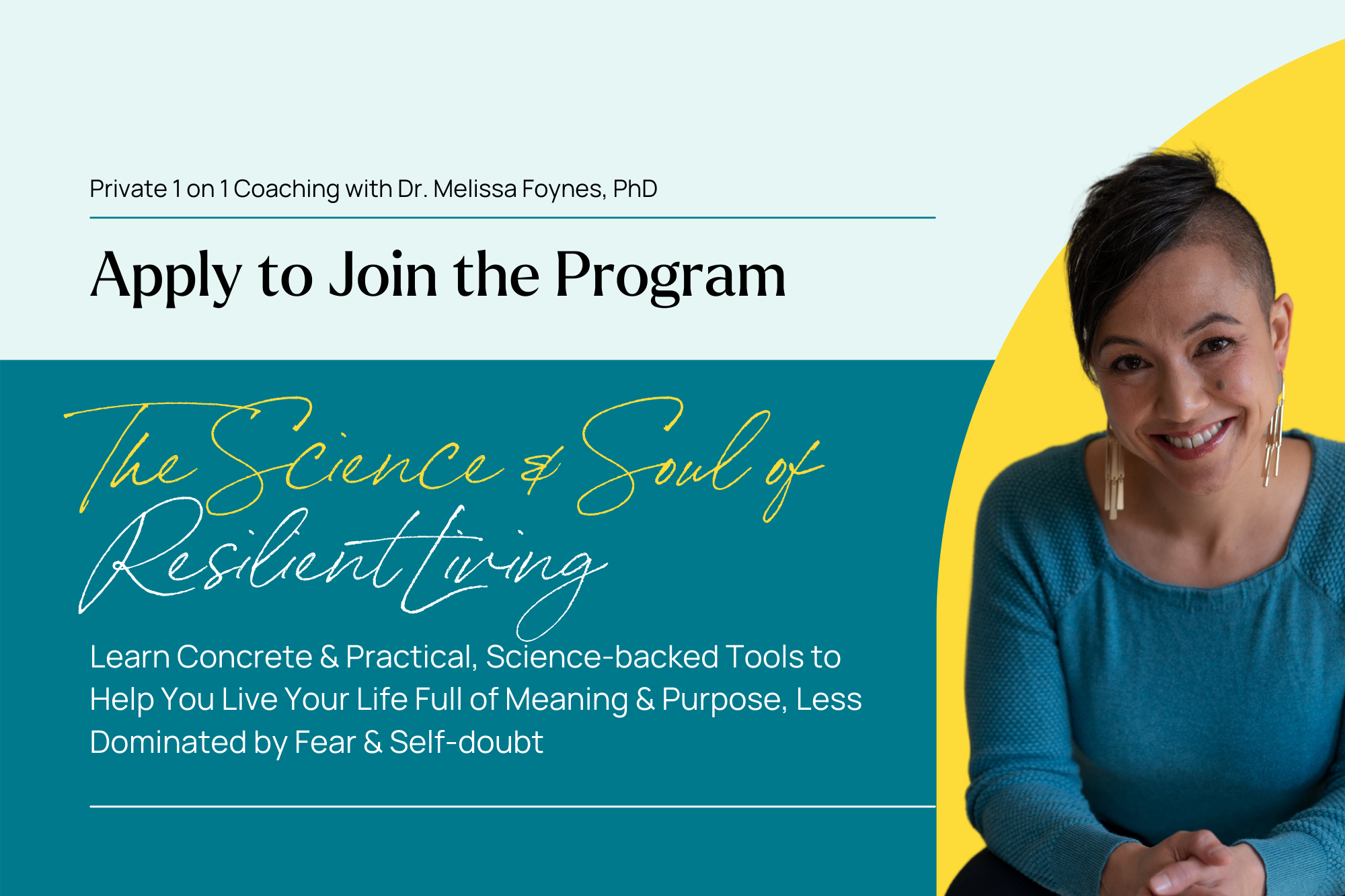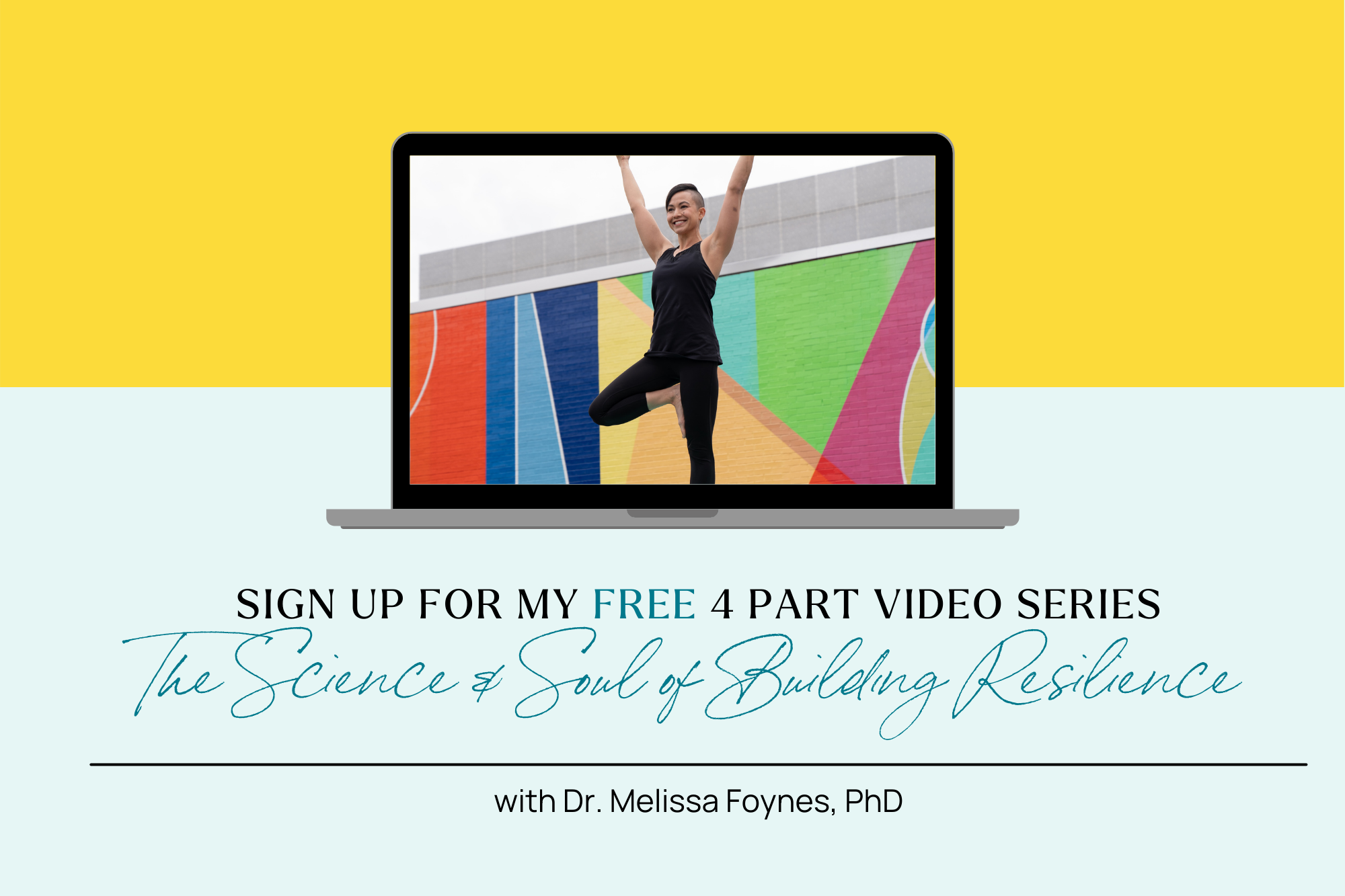welcome, I'm Melissa
Links
As a holistic coach, psychologist, mindfulness, meditation & yoga instructor, & Ayurvedic doula I offer personalized paths to growth & healing.
you may also like...
How to Overcome Self-Criticism: 3 Holistic Strategies
June 29, 2021
Our professional lives, our parenting, our romantic relationships and our friendships can all be affected by self-criticism.
A common challenge, self-criticism can block our access to love — including the ability to love ourselves and to receive love from others.
Many of us engage in self-criticism more often than we realize, or we don’t realize the extent to which we are affected by self-criticism.
The strength of any strategy for overcoming self-criticism begins with an understanding of where your self-criticism comes from — as well as the circumstances that trigger and exacerbate it.

Related: Sign up for our FREE 4-Part Video Series…
The Science and Soul of Building Resilience
LEARN MORE HERE!
What is Self-Criticism?
There are many influences in our lives that create and perpetuate self-criticism; the roots of self-criticism are often a combination of several key influences:
-
- societal messages
- the ideals and expectations of culture and society
- our families of origin
- variables related to our identities
- trauma
Understanding where self-criticism comes from can facilitate insight and awareness, allowing us to be with self-criticism more easily.
If we don’t understand where self-criticism is coming from — or are not able to interpret the kernels of wisdom that self-criticism might be showing up to announce — we may push it away or ignore it.
This can make our inner critic stronger rather than less forceful in our lives.
We don’t necessarily want to get rid of criticism entirely.
At times, self-criticism can prompt us to consider our actions more thoughtfully and engage in self-inquiry about our missteps. This process is helpful and important for us and for our relational health.
Yet, we don’t want self-criticism to shape the narrative of ourselves.
We want to be able to shift our relationship to self-criticism so that it doesn’t dominate our lives or dictate our behaviors.
These three holistic strategies, based on psychology and tools from other healing traditions, can help you respond more effectively to self-criticism in different areas of your life.
The strategies include…
-
- a mindfulness-based technique,
- a cognitive-behavioral approach
- a self-awareness practice from yoga

1. Mindfulness-Based Technique
The first holistic strategy is a mindfulness practice called RAIN, which is an acronym that stands for Recognition-Allow-Investigate-Nurture.
RAIN was originally developed by the mindfulness teacher Michelle McDonald and later revised by Tara Brach, Ph.D.
The following technique is a shorter version of RAIN that can be easily accomplished in under 10 minutes. It’s based on Tara Brach’s teachings.
Steps for Practicing RAIN
1. Begin by noticing a moment of self-criticism. Pause, taking a few full deep breaths, and let your inner experience be as it is. Resist launching into a problem-solving mode.
2. In that moment of self-criticism, recognize what thoughts you’re having. What are you saying to yourself, and what emotions are you experiencing?
3. Can you allow this criticism to exist? Can you be with these emotions and bodily sensations? Understand that self-criticism comes from somewhere — whether it’s an experience that just happened or an accumulation of life experiences of being criticized.
This understanding can help you soften around the criticism, rather than assuming it doesn’t belong or that there’s something wrong with you for criticizing yourself.
4. Investigate (with curiosity and kindness) whatever emotions feel most dominant. Dig a bit deeper into the self-critical thoughts, feeling into what about this experience feels most hurtful.
Where in your body does it register most strongly? What does that hurt, vulnerable part of yourself most need right now?
5. Allow your experience to be as it is, becoming aware of what you notice and feel. And then nurture yourself by trying to offer a gesture of care to yourself based on what the hurt, vulnerable part of you most needs — kind words, compassionate touch, forgiveness.
Then there’s after the rain. Notice what you felt now that you’ve walked through these steps, and see if you can find a sense of peace in this enhanced state of awareness.
This is a simple but powerful technique that can be practiced throughout the day.
If you’re not used to a practice like this, it will take some time to create shifts in your patterns of responding to self-criticism.

2. Cognitive-Behavioral Approach
Since self-criticism can be based on a habit rather than fact, it’s helpful to ask yourself: How true are these self-critical thoughts?
A useful cognitive-behavioral approach is to challenge your thought process. This strategy lets you challenge self-critical thoughts as they arise.
When noticing a self-critical thought, here are some questions to ask yourself:
-
- Is the self-critical thought really true? Is it 100% true, 100% of the time?
- What are some facts that don’t support this thought?
- What are the roots of this thought?
- Whose voice is this?
- Is the self-criticism you’re noticing based on feelings, such as shame, or facts?
- Do you tend to go to self-criticism when things go wrong?
- Are you focusing on any extreme or exaggerated detail, or only one piece of the story?
- Are you jumping to conclusions or making assumptions?
- Are you engaging in black and white thinking — for example judging something as good, bad, healthy or unhealthy — without appreciating the nuances?
Think about what you might do differently if you didn’t believe the self-critical thought. How would you feel?
What would your life be like if self-criticism didn’t dictate your behaviors?
Challenging your thought process can help change limiting behaviors and habits.
3. Self-Awareness Practice from Yoga
Yoga is a complex philosophical and psychological system with many different pathways; the physical practice of yoga — or Asana — is only one small slice of Patanjali’s Eightfold Path of Yoga.
In yoga philosophy, the first yama — or ethical principle — is Ahimsa.
Ahimsa is the foundation of all yoga practice.
And in yoga, Ahimsa is synonymous with self-kindness, self-compassion and self-care.
The Sanskrit word Ahimsa comes from the root word Himsa, which means to strike. As is common with many Sanskrit words, proceeding a root word with the letter “A” turns it into its opposite.
So Ahimsa would be non-striking and is typically translated as non-harming or non-violence.
If we bring this framework to thinking about self-criticism, then ignoring or getting rid of self-criticism could be considered an act of Himsa — or an act of striking or harm.
Through this lens, making room for any wisdom that self-criticism has to offer can be viewed as an act of self- kindness.
However, Ahimsa also means recognizing that self-criticism is not a referendum on who we truly are, and that our true Self extends beyond the limits of self-criticism.
Thus, the self-awareness practice of Ahimsa involves both making room for self-criticism — and inquiring about any wisdom it has to offer — as well as relating to self-criticism in a way that questions the truth and validity of the self-criticism so that it doesn’t dictate our behavior or define who we are.
How to Overcome Self-Criticism: Next Steps
We all encounter self-criticism.
If you’re ready to gain further insight about self-criticism, learn additional holistic strategies and take steps towards transformation in your life, you can do the following:
-
- Listen to the full podcast episode…
Holistic Strategies for Coping with Self-Criticism
You may also enjoy the companion podcast:
Understanding Our Inner Critics: The Power of Insight & Compassion

You can also learn more about my coaching practice through this free video series:
The Science & Soul of Building Resilience
In this 4-part series you’ll learn:
- Body awareness to help us center ourselves and live in a present-focused and embodied way even in the midst of stress
- Decreasing our stress response so we can access intuition and connect to our needs
- Values clarification to guide decisions about prioritizing our time, attention and energy
- Self-compassion to soften our harsh inner critics and facilitate growth following mistakes
SIGN UP to Get Instant Access!
MAKE SURE TO SUBSCRIBE TO THE SCIENCE & SOUL OF LIVING WELL PODCAST!
Apple | Google | Spotify | iHeart | Audible
You can also contact me or join us on Instagram – @drfoynes.
Related Articles on Changing Limiting Behaviors and Habits:
Freebie Alert!
Freebie Alert!
Newsletter
Sign up to get a dose of love, inspiration, wisdom &
all the latest news on events straight to your inbox.
privacy
terms
made with ❤ by habitat society
Explore
©2022, Melissa foynes
Thank you
You're subscribed to my newsletter. Please whitelist my email to make sure you don't missing anything I send you.
